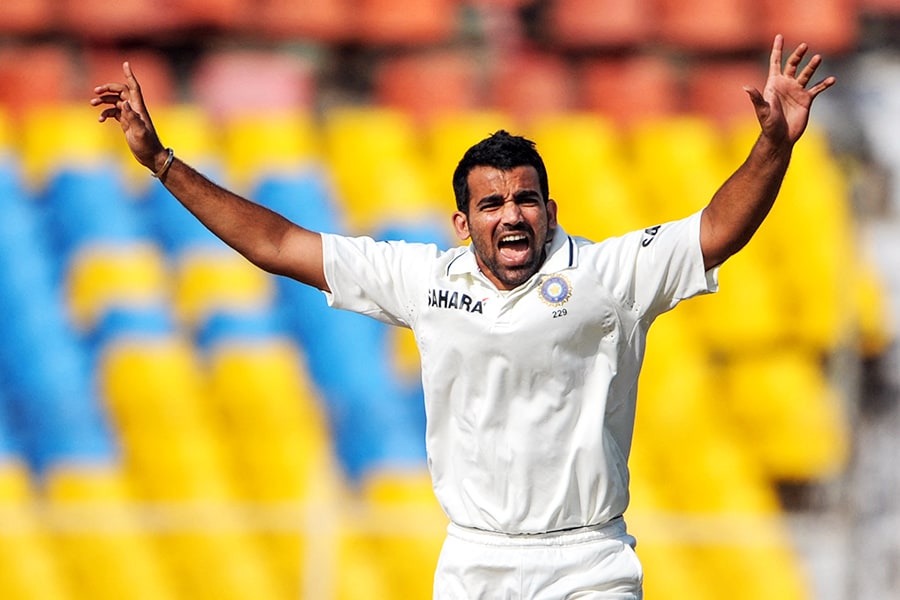
To not get carried away is a lesson I learnt from the 2003 World Cup loss, and it set me up for the 2011 final: Zaheer Khan
The former Indian pace spearhead and winner of the 2011 ODI World Cup on how to control the controllable and not let the occasion get to you
 (File)Indian cricketer Zaheer Khan successfully appeals against New Zealand cricketer Tim McIntosh during the final day of the first Test match between India and New Zealand at The Sardar Patel Gujarat Stadium at Motera on the outskirts of Ahmedabad on November 8, 2010. Image: SAJJAD HUSSAIN / AFP
(File)Indian cricketer Zaheer Khan successfully appeals against New Zealand cricketer Tim McIntosh during the final day of the first Test match between India and New Zealand at The Sardar Patel Gujarat Stadium at Motera on the outskirts of Ahmedabad on November 8, 2010. Image: SAJJAD HUSSAIN / AFP
Zaheer Khan's illustrious CV boasts of two ODI World Cup finals—one in 2003, which India lost to the marauding Aussies, and the second in 2011, where they reversed the outcome against Sri Lanka. Sitting down for a chat with Forbes India at Modernist, Four Seasons Mumbai's exclusive members-only club, the left-arm speedster, among India's most acclaimed, explains how the bitter loss in the former shaped his approach to the latter. Edited excerpts from the interview:
'The urgency to learn made me work harder'
I came to Mumbai from my hometown of Shrirampur in 1996 when I was 18. At that time, I was just focused on my studies and was trying to become an engineer. I landed at National Cricket Club, and the coach there, Vidya Paradkar sir, called the late Sudhir Naik to have a look at me. Naik sir had a chat with me, which was very simple in tone yet very complex. He asked me how much I was expecting to score from the Class 12 exams, and I told him something around 85 percent. He asked me what if there was a computer mistake and my score was messed up. I told him it was not something in my hand. I think he liked my confidence—he took me in, and that's how my journey in cricket started.
He told me something else during the conversation that stuck with me in those early days: He showed me the other trainees who had been playing since the age of 9-10, and since I started late, he said I had a lot to catch up. Which meant I would have to work doubly hard. And just so that I could match up to them, I would end up doing two sessions instead of one. I'd try to be a sponge and absorb as much as possible from people around me. I had an urgency in my training, and that had a positive impact on my growth.
'Don't let the occasion overwhelm you'
It's common knowledge that sports is fickle. For me, it's always been about controlling the controllables. It's a hallmark of my personality that I am usually unfazed by what happens to me. Whatever the problem is, I try to find a solution.
Say, the final of the 2003 World Cup, which we lost to Australia. I was 23 then, new on the circuit. The tournament was quite exciting as I had a great build-up to the final. But that match was overwhelming—it was the final, the national anthem was playing, and there was a rush of blood. Being a youngster, I was out of character in terms of following the process that had given me results so far. My emotions took over, and I tried to blast everyone with my bowling. After the match, I analysed what happened—that's when I realised that there was one passage of play that created a domino effect on the rest of the match.








